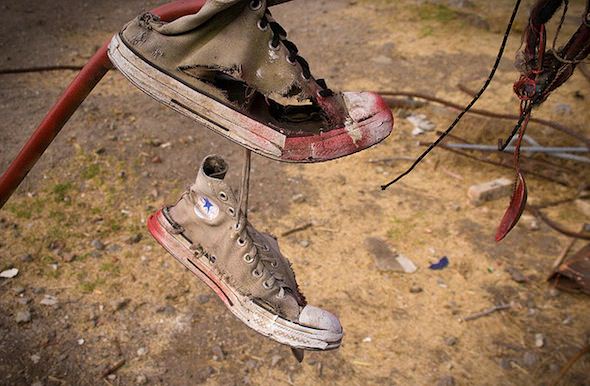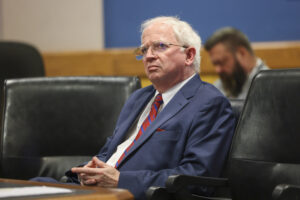Did Richmond, Calif., Reduce Its Murder Rate by Paying People Not to Kill?
Nearly a decade ago, violent crime in Richmond, Calif., was so bad that the City Council debated declaring a state of emergency. Seeking to end the bloodshed, officials authorized DeVone Boggan to pay likely perpetrators to stay out of trouble.
Nearly a decade ago, violent crime in Richmond, Calif., was so bad that the City Council debated declaring a state of emergency. Seeking to end the bloodshed, officials authorized DeVone Boggan to pay likely perpetrators to stay out of trouble.
Mother Jones contributor Tim Murphy reports that in 2007, Boggan launched the Office of Neighborhood Safety, “an experimental public-private partnership that’s introduced the ‘Richmond model’ for rolling back street violence.” After sifting through police records to determine 50 residents most likely to shoot someone or be shot themselves, the ONS approaches them and offers a stipend to turn their lives around, and a mentor to help. Murphy reports that the organization “resolutely does not share information with the cops.”
“So far, the results have been promising,” Murphy writes. “As this story went to press, 65 of the 68 ‘fellows’ enrolled in the program in the previous 47 months were still alive. One had survived a shooting and three had died. In 2007, when Boggan’s program began, Richmond was America’s ninth most dangerous city, with 47 killings among its 106,000 residents. In 2013, it saw its lowest number of homicides in 33 years, and its homicide rate fell to 15 per 100,000.”
Murphy continues:
Here’s how it works: A team of seven “neighborhood change agents” patrol the streets like beat cops, keeping tabs on the 50 high-risk members of what Boggan calls the “focus group.” The coordinators, most of them former convicts, check in with their sources at corner stores, barbershops, and churches and report back daily on what they’ve heard. “I want us to hunt ’em like they hunt, and I want us to hunt for information,” Boggan says. “We have better information than the police.” Once a certain level of trust has been established between the coordinators and their targets, a meeting is arranged, and the pitch is made.
In exchange for shunning dangerous behavior, ONS fellows receive anywhere from $300 to $1,000 per month, depending on their progress following a “life map” of personal and professional goals. If they team up with someone from a rival community to renounce violence altogether, they can get even more money—though that’s yet to happen. Fellows can receive stipends for 9 of their 18 months in the program. The city gave ONS $1.2 million for its operating budget last year, but the money for the stipends came from a handful of private donors, including the health care giant Kaiser Permanente. (A Kaiser spokeswoman says the program is good for “diffusing community tensions and reducing violence,” thereby limiting stress-related health risks like heart disease, strokes, and diabetes.)
ONS staffers help fellows take concrete steps toward stability, from providing assistance in getting a driver’s license or a GED to helping raise $5,000 for a merchant-marine training class. Though the program officially cuts off when fellows turn 25, Boggan says ONS tries to stay in touch with them as long as possible.
Read more here.
— Posted by Alexander Reed Kelly.
Your support matters…Independent journalism is under threat and overshadowed by heavily funded mainstream media.
You can help level the playing field. Become a member.
Your tax-deductible contribution keeps us digging beneath the headlines to give you thought-provoking, investigative reporting and analysis that unearths what's really happening- without compromise.
Give today to support our courageous, independent journalists.






You need to be a supporter to comment.
There are currently no responses to this article.
Be the first to respond.